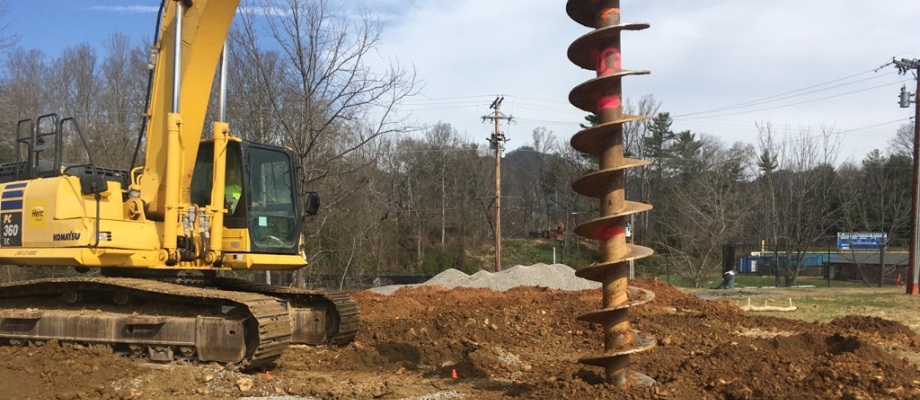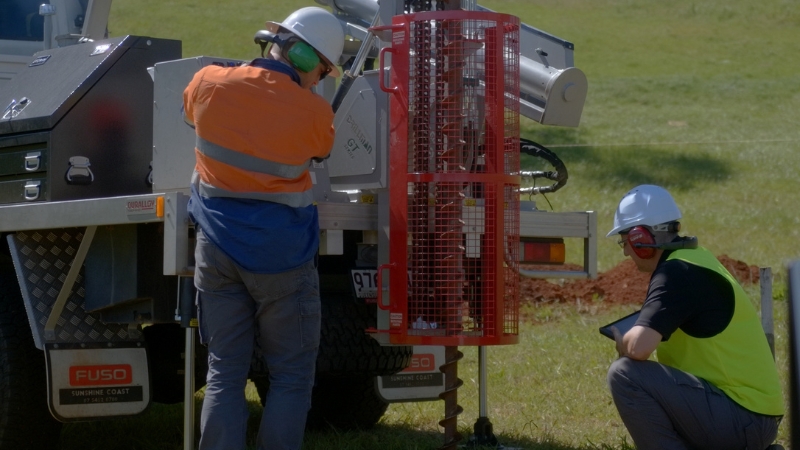Crucial Top Qualities of Effective Civil Consulting Engineers
Crucial Top Qualities of Effective Civil Consulting Engineers
Blog Article
Recognizing the Comprehensive Role of Geotechnical Engineers in Ground Investigation and Dirt Evaluation for Building And Construction Projects
Geotechnical engineers are essential to the success of building and construction projects, giving essential understandings via detailed ground examinations and soil evaluation. Their knowledge in assessing soil behavior and using sophisticated screening methods informs crucial decisions that promote structural stability and security. By identifying possible risks and working together with multidisciplinary teams, these experts substantially influence job outcomes, consisting of effectiveness and cost-effectiveness. Nonetheless, the complexities of their role commonly expand beyond these features, motivating a much deeper exploration into the approaches they employ and the implications of their searchings for on overall task feasibility.
Duty of Geotechnical Engineers
The pivotal function of geotechnical designers in construction tasks can not be overemphasized, as they give important understandings into dirt actions and website conditions. These experts are tasked with assessing the suitability of the ground for different kinds of structures, making sure safety and security throughout the building and construction procedure. Their competence encompasses a vast array of activities, including website characterization, dirt tasting, and laboratory testing, which are important for establishing the mechanical and physical residential properties of the dirt.
Geotechnical engineers use their findings to develop fundamental layouts that fit load-bearing requirements and alleviate threats associated with soil negotiation, liquefaction, and incline security. They play an essential function in recognizing prospective risks, such as groundwater fluctuations and contamination, which can considerably influence project feasibility. They team up with designers, civil engineers, and professionals to make certain that geotechnical considerations are incorporated right into the general layout and construction phases.
Ground Examination Strategies
Ground examination techniques form the foundation of geotechnical design, allowing engineers to obtain an extensive understanding of subsurface problems. These methods are important for analyzing soil residential or commercial properties, determining groundwater degrees, and identifying prospective geological risks.
Common techniques include borehole boring, which enables the removal of soil examples at different depths, giving essential information for analysis. Furthermore, sitting screening techniques, such as Common Infiltration Examinations (SPT) and Cone Infiltration Examinations (CPT), are utilized to review dirt stamina and density straight in the ground.
Geophysical methods also play a substantial duty in ground investigations. Methods such as seismic studies and electrical resistivity tomography help evaluate subsurface features without considerable excavation. civil consulting engineers. These non-invasive approaches are especially advantageous in delicate or huge areas where disruption have to be reduced
Additionally, exploratory trenches can be dug deep into to visually check soil layers and identify any type of anomalies. Each of these techniques adds special insights, permitting geotechnical designers to develop exact website analyses and inform style decisions. In recap, a combination of these ground examination methods is crucial for successful building and construction tasks, making certain security and structural integrity.
Dirt Analysis Approaches
Dirt analysis approaches are critical for recognizing the chemical and physical buildings of soil, which directly affect the design and construction of foundations and other frameworks. Different methods are utilized to assess soil characteristics, guaranteeing that geotechnical engineers acquire accurate data for notified decision-making.
One typically made use of technique is grain dimension evaluation, which identifies the distribution of particle dimensions within a dirt sample. This is important for classifying soil types and predicting their behavior under lots. Another important strategy is Atterberg limits screening, which reviews the plasticity and wetness material of fine-grained soils, providing understandings right into their design residential or commercial properties.

Area examinations, such as Basic Infiltration Tests (SPT) and Cone Penetration Tests (CPT), deal beneficial in-situ information regarding soil stamina and stratification. Jointly, these dirt analysis approaches develop the foundation of geotechnical investigation, enabling designers to design reliable and risk-free structures tailored to the specific conditions of the site.
Risk Reduction Techniques
Implementing efficient threat mitigation techniques is vital for geotechnical designers to attend to prospective difficulties in building tasks. These methods are important in recognizing, analyzing, and handling risks related to dirt conditions, website stability, and groundwater changes, which my blog can negatively influence task end results.
One primary method entails performing complete site examinations that make use of advanced geophysical techniques and comprehensive dirt sampling. By getting accurate information on subsurface conditions, engineers can make enlightened decisions on style and building methods. In addition, employing predictive modeling devices permits the simulation of various circumstances, making it possible for engineers to predict potential problems and implement precautionary steps.
Furthermore, establishing clear interaction channels among task stakeholders promotes a collective method to run the risk of administration. Regular updates and appointments make sure that all parties know the progressing site problems and can adjust their strategies accordingly.

Influence on Construction Tasks
The effectiveness of threat mitigation techniques straight affects the total success of building and construction jobs. Geotechnical designers play a pivotal duty in this domain name, as their experience in ground examination and dirt evaluation notifies vital decisions throughout the construction procedure. By precisely evaluating dirt conditions and identifying possible risks, these specialists allow task groups to design efficient services that decrease risks connected with ground instability, water infiltration, and various other geotechnical challenges.
The impact of complete geotechnical analysis appears in different elements of construction jobs, including expense administration, project timelines, and structural stability. Early identification of concerns permits prompt interventions, lessening costly hold-ups and spending plan overruns. Additionally, a comprehensive understanding of website conditions boosts the layout and engineering procedure, guaranteeing that structures are developed to stand up to environmental stress and potential natural disasters.
Ultimately, the contributions of geotechnical engineers are integral to the effective execution of building and construction jobs. Their work not just cultivates safety and security and conformity with guidelines yet likewise improves the lasting sustainability of structures, making sure that they perform effectively throughout their designated life-span. The collaboration in between various other stakeholders and geotechnical teams is crucial for accomplishing ideal end results in construction ventures.
Conclusion
In final thought, geotechnical engineers carry out a crucial function in building and construction jobs with extensive ground examinations and dirt analyses. Their competence in evaluating soil habits, employing numerous examination techniques, and applying threat mitigation methods significantly adds to the structural stability and security of constructed atmospheres. By teaming up with multidisciplinary teams, these specialists improve job effectiveness and make sure conformity with security criteria, eventually resulting in effective building and construction end results and lowered potential risks.
Geotechnical engineers are indispensable to the success of building and construction projects, giving crucial insights through comprehensive ground examinations and dirt evaluation.The essential function of geotechnical engineers in construction jobs can not be overemphasized, as they provide essential understandings into dirt actions and site conditions. Their knowledge includes a wide array of activities, including site characterization, soil sampling, and research laboratory screening, which are essential for identifying the physical and mechanical homes useful reference of the dirt.
By accurately evaluating dirt conditions and determining potential threats, these professionals allow job teams to develop effective remedies that lower threats connected with ground instability, water seepage, and various other geotechnical obstacles.
In conclusion, geotechnical designers carry out a critical feature in click to investigate construction projects with thorough ground investigations and dirt evaluations.
Report this page